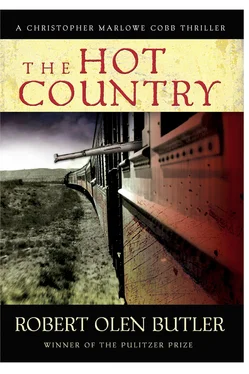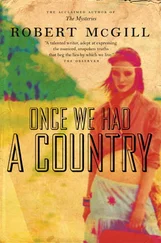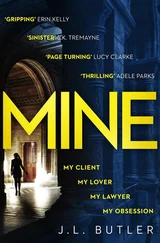Across from me at this end of the car were a couple of hayseed-blond Bluejackets, who could have been brothers, dressed in their tropical whites and looking antsy. I realized I’d been assuming the Germans were just going somewhere to drink together, but this was the route to the red-light district, and for a moment I was afraid I wouldn’t have access to them. But the evening, though not quite young, wasn’t yet middle-aged, so if they wanted girls — and even if they wanted to impress them with their uniforms — they probably would have at least unloaded their instruments before heading off. This still felt like some guys heading straight for a drink.
And I was right. They rose from their seats one stop short of the girls, and I followed them off the trolley, leaving my fellow Americans to go on along the line to a little Navy-sanctioned, country-boy sin. I hung back a bit and watched these four enter a pulquería, a one-story adobe house a bit larger than the usual, identifying itself by the bands of brightly colored tissue paper strung over its open doorway. They were four Germans with a taste for pulque . This was a quick-fermenting drink from the maguey plant, the Mexican national working-man’s drink with about the same mild kick and certainly the same ubiquity as the band members’ lager.
I gave them a few minutes to settle in, and then I entered the place, which stank sourly of the pulque . The boys from the band were at a back table with tankards of this stuff. The front tables were full of locals, mostly with dark, angular Aztec faces, the ones drinking pulque talking, the ones doing the distilled version, which was basically mezcal, looking glum. I went to the wooden counter that was not quite a bar but offered a place to stand if you were of a mind to, and I got my own tankard. I stared at it a little while before drinking, as if I could change how it would taste. I needed to drink some before looking at my Germans, just to make all this seem to have been casual when I started asking questions.
The pulque was just as I remembered from my days hanging around this country in ’04, on my own, glad to be away from an endless succession of theaters, even Mother knowing it was time I went out and found a different kind of life, a life of my own. To her credit. You’d think with me being twenty years old, dreaming of becoming a newspaperman like B. F. Millerman, writing stories on cable blanks in Mexican cantinas with no one to send them to, and then finally writing a real story about the madman Nicolás Zúñiga in his third futile run against the tyrant Díaz and mailing it to the Post-Express, which started my career, you’d think whatever there was at that point in my life that served the function of beer, that stuff would strike me as swell. You’d think so, but that would be wrong. The pulque still looked like watered-down wallpaper paste and tasted like sour milk and yeast and faintly like something dead, just as it did a decade ago. But I kept a straight face.
I looked toward the Germans. And the alto horn man was looking toward me. He nodded very slightly. I nodded very slightly. The other three were in voluble conversation with each other, and this one guy seemed a little apart from them. The obvious thing would have been to use this as an invitation to go over and join the Germans. Buddy up with all of them at once and prep them for a few questions. But this one man, catching my eye on two different occasions: My instinct told me to deal with him individually first. Then if I decided I needed them all, he could be my way into the group.
There was a scraping of a chair nearby, and I turned to see one of the mezcal drinkers at this end of the room rise from a small table where he was alone. He wobbled there for a moment and then weaved his way to the door. I glanced at Alto Horn and he was still looking at me. I angled my head very slightly to the empty table and headed for it. I sat. He arrived and sat across from me. Nearly in unison, we set our tankards of pulque before us. He was older than his thinness made him seem from a distance. Beside his eyes were fine webs of lines and between his brows were two permanent furrows. He was probably pushing forty. Or, if he was younger, he was a serious worrier.
We offered our hands and shook. “Gerhard Vogel,” he said.
“Christopher Cobb,” I said, and then, in German: “I don’t speak German.”
He nodded at this and did not answer. He was looking at me closely. Very briefly I thought my German was even worse than I’d realized. But it was not incomprehension in Gerhard Vogel’s face. There was something about the eyes that a reporter learns. But how do we read eyes? Part of this man was studying me closely and that should narrow his eyes. Part of him sought to open up to me and that should widen his eyes. These things canceled themselves out, and by rights, by an objective glance at him, his eyes should have seemed neutral. But you learn to feel this opposition of forces, and so his eyes were telling me: I want to reveal something but I don’t know if I can trust you. If it was something critical for a story and he wanted me to forget it utterly after he said it, he couldn’t trust me. As for some other conditions — keeping his name out of it, for instance — I was his man. I waited.
He made a decision. He lowered his voice and leaned a bit toward me. “I speak English,” he said in English.
I glanced over his shoulder. The other three Germans were still involved in an animated conversation. They seemed not even to be aware that Gerhard was across the room.
“They don’t know,” he said.
Hell’s bells was my first thought. If that made him nervous, I was unlikely to get anything important out of him. “That’s a secret?” I said.
Gerhard shrugged. “It was a long time ago.”
“That you were an American?”
“Yes.”
“Then it’s just between us,” I said.
“I know who you are,” Gerhard said.
“Don’t worry,” I said. “Your speaking English wouldn’t exactly be a story for the Post-Express .”
“From your Balkans pieces in Scribner’s .”
“Which you read in secret?”
“From a couple of pictures of you there, one with the Greek dead at Kilkis and one in Sofia,” he said, finishing his thought. And then: “I play in the band. I live in Germany. But I do have a private life.”
I heard myself, how I’d sounded with him for the past few moments: snide. I wasn’t sure why I was disliking him.
“Your writing style is very clean,” he said.
“Thank you,” I said, trying to turn up the warmth in my voice.
“Very Tinker-to-Evers-to-Chance,” he said.
And now I liked him. A lot. To compare my writing to those boys turning a slick double play? How could I not? “Man oh man,” I said. “You a Cubs fan?”
“I hate the Cubs. But I appreciated the way they played.”
“You do have secrets.”
“The Pirates were my team,” he said.
“Keep that one strictly to yourself.”
He shrugged.
“You from Pittsburgh?” I asked.
“Eventually,” he said.
“When did you leave the States?”
“’07.”
“Couldn’t handle the Cubs winning the Series?”
“My new wife hated being away from Germany. We went.”
I was thinking more clearly now. Trying to figure this guy out. I flipped my chin to gesture over his shoulder. “They don’t know about her?”
“She died the next year.”
“I’m sorry.”
He shrugged again. Indistinguishable from his shrug over my ragging him about being a Pirates fan. Maybe I was better at reading eyes than shrugs, but his voice carried a little tremor of actual feeling about that turn of events, so the sameness of the shrug seemed very sad.
Читать дальше












